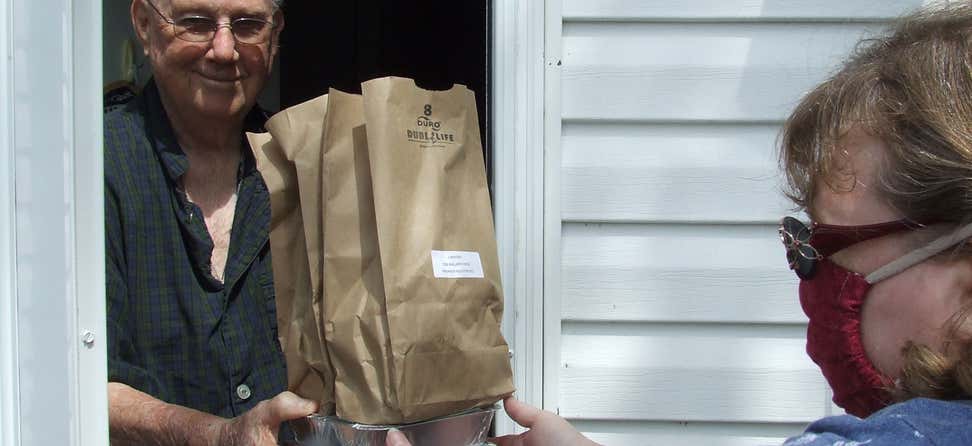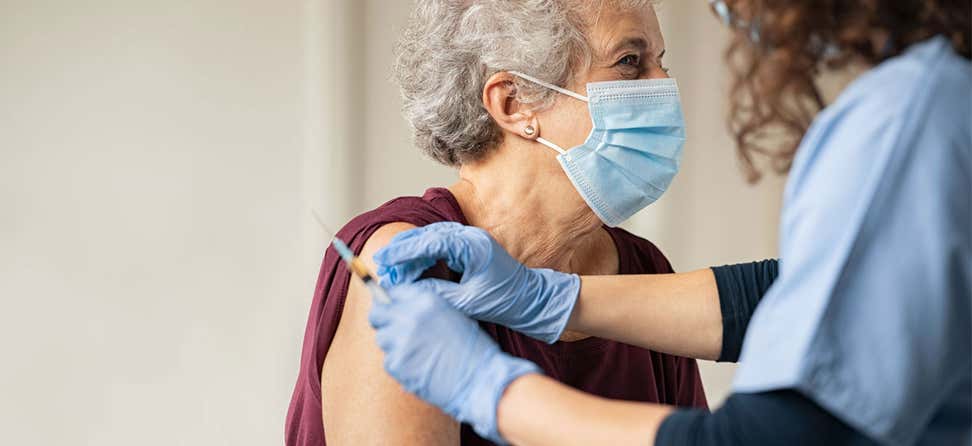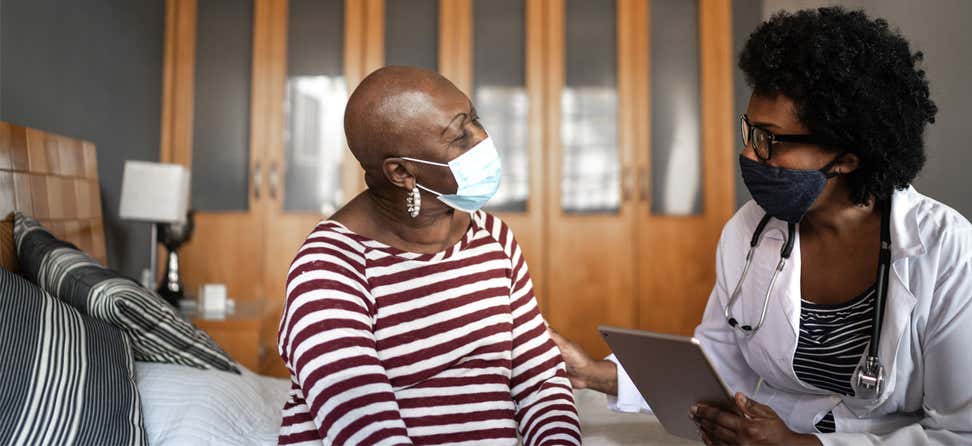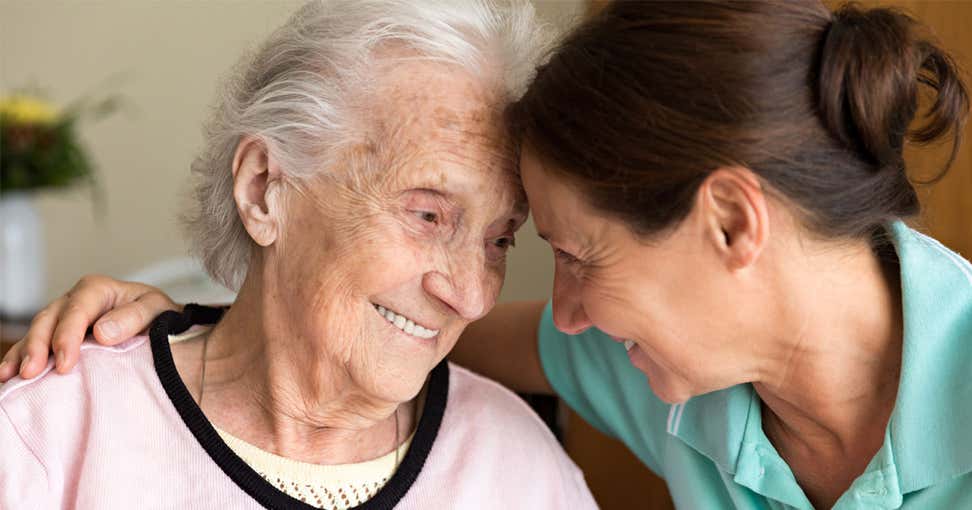Key Takeaways
The 2020 Heroes Act passed earlier this year by the House is the latest proposal to address the COVID-19 crisis for Americans.
Estimated to cost $3 trillion, the Heroes Act includes food and unemployment assistance, among other efforts aimed at addressing known problems.
NCOA has advocated for several issues within the relief bill, including Medicaid, SNAP, and health promotion and disease prevention for older Americans.
On May 15, the U.S. House of Representatives passed The Heroes Act (H.R. 6800), the latest COVID-19 relief proposal, largely along party lines. Intended as an ambitious opening bid from House Democrats for continuing negotiations and, despite the urgency of the COVID-19 crisis, the bill was criticized by Senate Republicans and the White House, which are not expected to work on their own proposal until June.
With an estimated cost of $3 trillion over 10 years, the 2020 Heroes Act targets many problems, including:
- expanded food and unemployment assistance;
- assistance for struggling state and local governments;
- another $1,200 relief payments to individuals;
- hazard pay for essential front-line workers;
- housing assistance fund to help pay rents and mortgages; and
- health insurance premium payments for laid off workers
Several issues the National Council on Aging (NCOA) has specifically advocated for were also included. They focus on Medicaid, Supplemental Nutrition Assistance Program (SNAP), and health promotion and disease prevention.
The Heroes Act and Medicaid
Medicaid is the federal-state program providing health and long-term care coverage for low-income Americans. As unemployment has risen, Medicaid enrollment has increased, severely straining state resources and jeopardizing their ability to meet growing needs. Both Republicans and Democratic governors are calling on the federal government for additional help. The Heroes Act would increase the federal matching rate by 14%, providing a much-needed boost to state budgets which are struggling from across-the-board drops in revenue. NCOA has advocated for this change, as well as for additional funding for Medicaid home and community-based services (HCBS).
HCBS supports older Americans and people with disabilities who can stay safe at home, rather than in nursing homes or other institutions. An additional 10% federal match for HCBS was also included in Heroes Act. These additional funds would allow states to provide services to individuals on lengthy wait lists and increase availability of and supports for home care workers. We were pleased to see this included in the bill, since HCBS is often targeted for cuts. Medicaid pays for almost two-thirds of seniors’ long-term care needs and is the primary source of coverage for HCBS. Even before coronavirus hit, nearly 820,000 people in over three-quarters of states were on HCBS waiting lists, with an average wait time of 39 months. Keeping older adults healthy at home during the pandemic is more important now than ever before.
The Heroes Act and SNAP
To address the food assistance needs during this pandemic, The Heroes Act increases Supplemental Nutrition Assistance Program (SNAP) benefits by 15 percent and the minimum benefit for seniors is increased from $16 to $30 through September 2021. This change alone would help more than 1 million senior households, nearly 25% of all senior households receiving SNAP.
In addition, regulatory changes that would have limited access to benefits were blocked from implementation. Without COVID-19 relief bill, categorical eligibility and State Utility Allowances helping low-income seniors maximize their SNAP benefits will be threatened.
The Heroes Act and Health Promotion and Disease Prevention
People over the age of 60, particularly those with chronic conditions, are at highest risk of nursing home placement, hospitalization, and death due to COVID-19 complications. The Centers for Disease Control and Prevention (CDC) has reported a strong, direct correlation between rates of hospitalization and age. Seventy-eight percent of intensive care patients have one or more chronic illnesses.
The Heroes Act provides $10 million for the evidence-based health promotion and disease prevention programs authorized by Title III-D of the Older Americans Act (OAA). This simple step will help older adults maintain their health during these trying times, help manage existing chronic illness, prevent the occurrence of new conditions, and mitigate social isolation. Better health means less demand on doctors and hospitals, which we have been strained during the pandemic. Health promotion and disease prevention programs can also serve as a mechanism to popularize the CDC’s COVID-19 prevention strategies for older adults.
Other Investments For Older Adults
The bill also includes appropriations for a variety of other programs and services NCOA regularly educates and advocates for, many of which are administered via the Older Americans Act (OAA):
- $20 million for OAA supportive services
- $19 million for OAA nutrition services
- $20 million for the OAA National Family Caregiver Support Program
- $10 million for OAA elder rights protection activities
- $5 million for OAA statewide senior legal services
- $1.5 billion for the Low-Income Home Energy Assistance Program (LIHEAP)
- $1.2 billion for Section 202 Housing for the Elderly
- $9.6 billion for the Social Services Block Grant (SSBG)
What's Missing From The Heroes Act
Although expanding SNAP benefits is greatly needed by many Americans right now, older adults staying physically distant require additional help to fully access this assistance. More and more states are being approved for pilot programs that provide food delivery to SNAP beneficiaries, but even the delivery fees put this option out of reach for many. Legislation like The Food Assistance for Kids and Families During COVID-19 Act, introduced by Sen. Casey and Rep. Hayes, addressed many of the issues related to delivery of SNAP-purchased groceries.
To help employment, The Heroes Act includes $2 billion for job training to help people get back to work. Unfortunately, it does not give additional funding to the Senior Community Service Employment Program (SCSEP). SCSEP is the only federal program focused on the job training and placement needs of low-income older workers. As job losses mount during the COVID-19 pandemic, we are again seeing older workers struggle with long-term unemployment at a greater rate than their younger counterparts. We hope Congress will fix this gap in support.
What's Next in Providing Relief for Older Americans
The bill now heads to the Senate, where Republicans, who hold a majority, are saying they would like to see how dollars allocated in earlier bills are being spent before taking additional action. There appears to be consensus, however, that legislative action will need to be taken by this summer. Senate Majority Leader Mitch McConnell has stated that a priority will be protecting businesses from liability lawsuits.
NCOA and other groups advocating for older adults are concerned that this package may be the last major COVID-19 response bill considered by Congress this year. That raises the stakes of including provisions to protect and support older Americans. Low-income older adults continue to be at greatest risk of hospitalization and death due to coronavirus complications. Senators need to hear from their constituents about the need for additional federal assistance during the crisis. You can help by contacting your Senators now and following us on social media for future advocacy opportunities.











